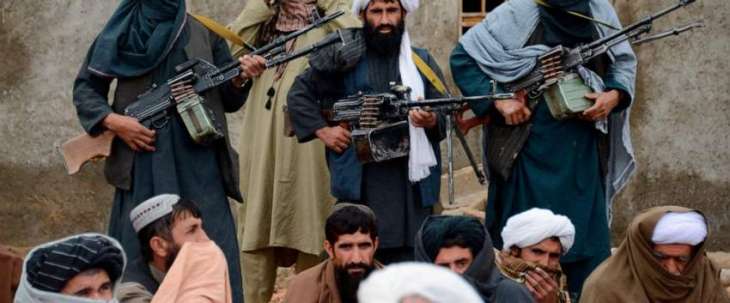A US watchdog has released a report directed to the US Congress in which it stressed the importance of preparing for the various scenarios that could unfold in the event of a peaceful resolution to the 17-year war in Afghanistan
MOSCOW (Pakistan Point News / Sputnik - 01st May, 2019) A US watchdog has released a report directed to the US Congress in which it stressed the importance of preparing for the various scenarios that could unfold in the event of a peaceful resolution to the 17-year war in Afghanistan.
On Wednesday, a new round of negations between the US government and the Taliban radical movement are due to take place in Doha, Qatar. The two sides will discuss the framework for an eventual peace deal, in which the Taliban would vow to keep the Afghan territory from being a haven for terrorists wanting to attack the United States and its allies, and the United States in return agreeing to pull its troops out of Afghanistan.
"The report stresses the importance of planning for 'the day after' any peace deal in eight areas: security, civil policing, corruption, economic growth, counternarcotics, women's rights, the reintegration of ex-combatants, and oversight," the quarterly report by the Special Inspector General for Afghan Reconstruction (SIGAR), which monitors billions of Dollars of US aid in Afghanistan, released on Tuesday, said.
According to the report, there were several "day after" risks that could threaten the approximately $133 billion of US aid, of which almost $10 billion remains to be disbursed by US Congress, for Afghanistan's reconstruction efforts and send the country back into a state of political crisis.
"These 'day after' risks could threaten U.S. taxpayers' investment in Afghanistan, set back humanitarian and development programs, undermine Afghan government support, or even lay the grounds for new or resumed discord. In short, they could frustrate the shared goal of a stable Afghanistan at peace with itself and its neighbors, and which respects the rule of law and human rights," the report said.
SIGAR added economic growth, women's rights and reintegration of former Taliban fighters back into civil society as new items on the high-risk list which already included widespread insecurity, illicit narcotic trade, corruption and underdeveloped civil policing capability as threats to the long-term post-war reconstruction efforts in the country.
Additionally, the report said that sustainability was a long-standing concern for the reconstruction period and various factors such as shortcomings in finance, staffing and technology could undermine the Afghan government's ability to maintain reconstruction programs once foreign support was withdrawn or reduced.
On Monday, the Grand Consultative Jirga on Peace, a traditional gathering of elders, religious scholars and prominent Afghans, gathered in Kabul to discuss efforts to end the conflict with the Taliban. The Jirga was held weeks after the much-anticipated talks between the Afghan government and the Taliban fell through.
Afghanistan has long been in a state of turmoil, with the government fighting the Taliban, which has been holding vast territories in rural areas under its control and regularly launching offensives across the country. The situation has been exacerbated by the activities of the Islamic State terrorist group (banned in Russia), which has been operating in Afghanistan since 2015.




